My grandfather never talked about the war.
That’s him as a dashing young officer, right there.
I should say “wars” since, as first a Royal Indian Air Force and then an Indian Air Force officer, from which he retired as a Group Captain, he’d seen his fair share of them.
He preferred to spend his time with his grandchildren squeezing us so hard that his mustache ticked (we squealed, but were secretly delighted), teaching us how to play golf when we’d visit his Kalimpong home on vacation, or declaring his innate superiority as a Brahmin – with a twinkle in his hazel eyes – when on the losing side of any argument.
“I’m a Brahmin”
The Brahmin bit always cracked us up. Even if, according to the Hindu caste system, that’s what his family was, if there was anyone who cared less about caste and status, it was my grandfather… not to mention the fact that he was a devout Christian.
When I was talking with my parents a few days ago, I asked if they remembered any of my granddad’s war stories.
My father – who held his father-in-law in such great esteem that, until the day the latter passed away, addressed him as “Sir” – told me quite a bit I didn’t know.
My grandfather, who was born in 1920, enlisted at the age of 19.
Nineteen. Nineteen!
World War II
During World War II, he was a Flying Officer with the RIAF. During this time (my dad says it was 1943-44), he was shot down over the jungles of Burma. You see, during WWII, Indian servicemen were not just supporting the Allied powers, but also fighting their own: the Indian Nationalist Army.
The goal of the INA was to overthrow the British Raj. And because its founder, Subhas Chandra Bose, vehemently opposed Gandhi’s non-violent approach, he decided to do this by any means necessary.
And this meant, to him, teaming up with the Japanese to take advantage of WWII.
My grandfather was rescued by an elite force known as the Chindits. I don’t know – and didn’t think to ask – if he spent any time as a PoW, but I imagine being shot down was experience enough.
 The First Kashmir War (1947-48)
The First Kashmir War (1947-48)
When India achieved Independence in 1947, it was not peaceful, despite its roots in Gandhi’s non-violent approach.
The newly-formed countries of India and Pakistan each wanted control of strategically-placed Kashmir, so what did they do?
Image: taruntej via Flickr, CC 2.0
Why, they went to war, of course. And they still haven’t figured it out.
During this time, my grandfather flew transport aircraft. I imagine it was not a lot of fun.
The Second Kashmir War (1965)
By this time, my grandfather was commanding Barrackpore Air Force Base, which is just outside the metropolis of Kolkata (previously known as “Calcutta”) and also where the first shots of the 1857 Indian Mutiny were fired.
While the war was primarily being fought on the Western front (since that’s where the India/Pakistan border is), all Indian bases were on alert.
I’m told my grandfather was stunned when he heard over the radio that there would be a blackout drill. And not just that it would take place, but when and where.
Presumably this was done to calm Indian citizens… or perhaps it was done out of sheer stupidity.
“Those bloddy fools!” My grandpa declared. “Now they know when to hit us!”
(I paraphrase, but that’s the gist of it.)
Sure enough, on the afore-announced night – which was moonlit – Pakistan sent in its jets, and as my grandfather was on the tarmac (a transport squadron was landing), he narrowly missed being hit by one.
Telling the tale
Fortunately, he lived to tell the tale. Even if he didn’t tell it to me, at least he told it to my parents, and they, in turn, passed down the family folklore to me.
I am very lucky that so far, I haven’t experienced war directly, even though I live with the impact that war has on us every day. With India having been subjected to terrorism for years, long lines at airports, road blocks and increased scrutiny don’t really phase me.
Much.
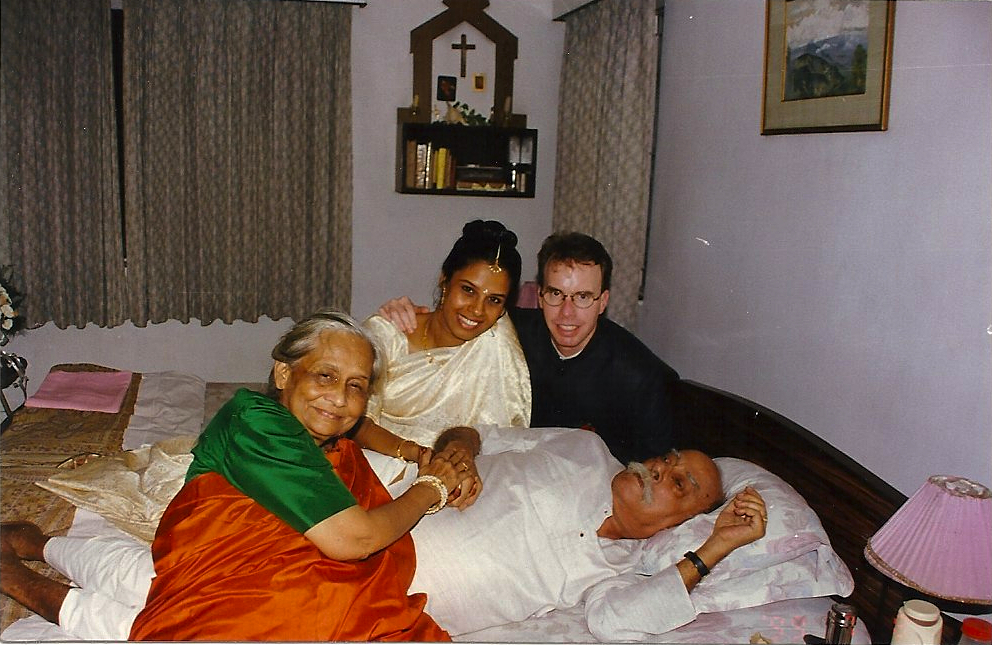 And while my grandfather might not have talked about his wartime experiences, there was no doubt – even to us grandkids – that they defined how he behaved every day.
And while my grandfather might not have talked about his wartime experiences, there was no doubt – even to us grandkids – that they defined how he behaved every day.
He was one of the quietest people I ever knew, extremely humble, and most loving. I can’t remember ever hearing him raise his voice, and he had the patience of Job.
He was too ill to come to my wedding, so after the reception, we went to him, and that’s what you see here.
No doubt he knew the importance of seizing the moment, having stared Death in the face more times than he could count.
He was also one of the most disciplined people I knew. Until his health started failing (he suffered two heart attacks), he awoke religiously with the sun, had an impeccable work ethic and, above all, put family first.
I have adjusted – more or less – to the fact that I will not see my grandfather again, as he passed away in 2003.
But I think and dream of him often, and miss him more than words can say.
That is why I, today, Return the Favor.
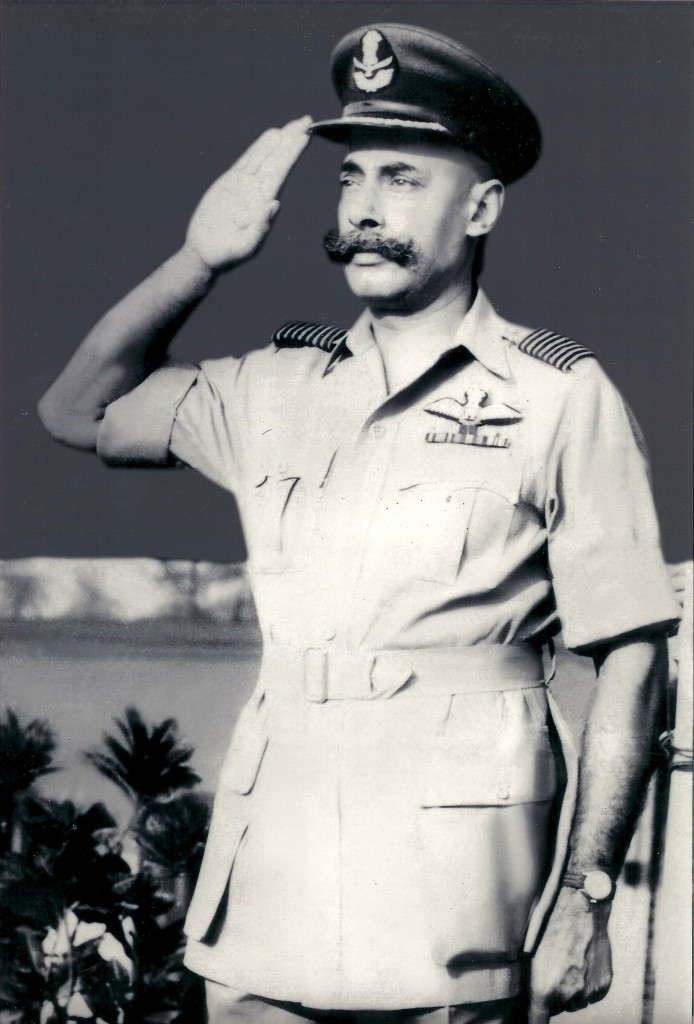

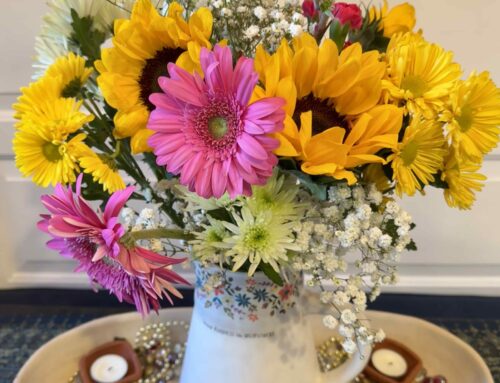

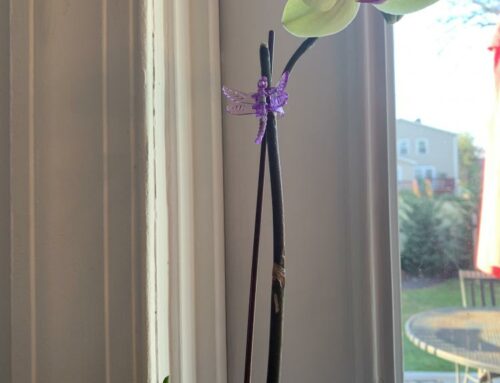
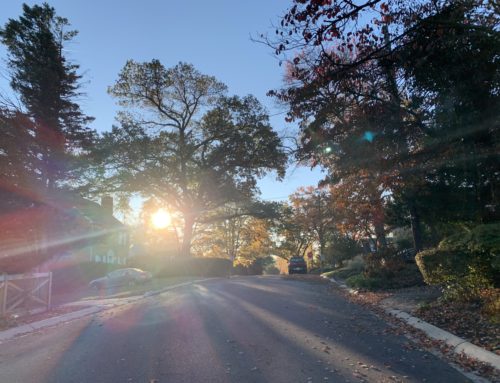
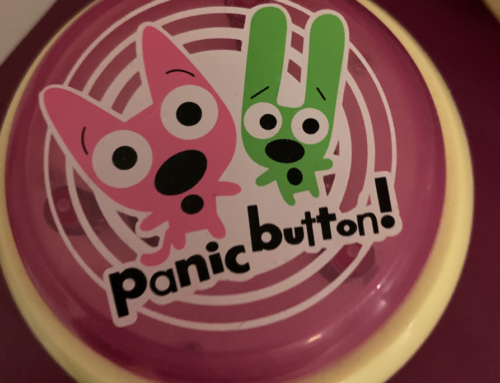
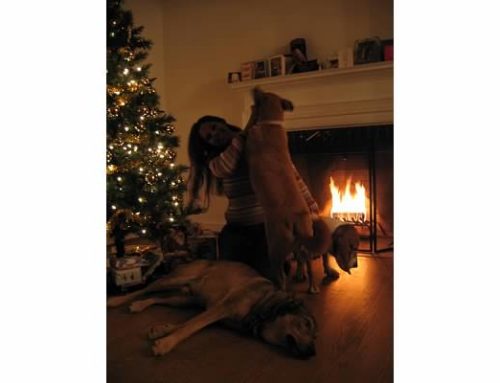
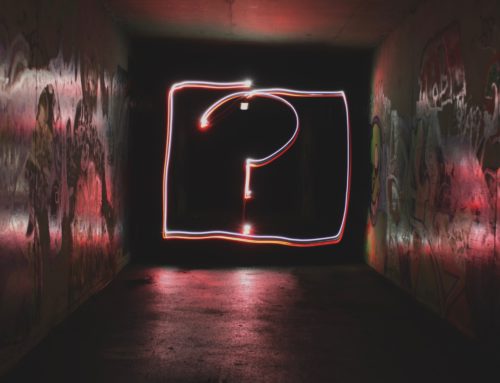
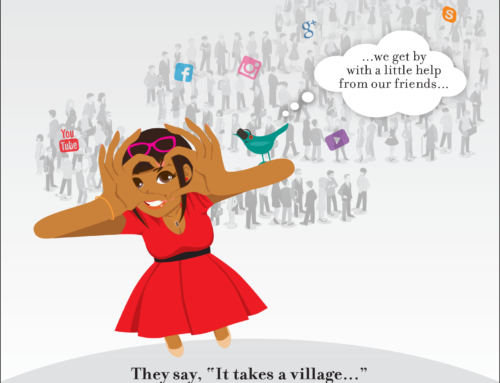
[…] would have been my grandfather’s birthday (I’ve written about him before). Even though he passed away 11 years ago, I still miss him. I suppose you never really “get […]
[…] photo you see is of my grandfather, who was a career Air Force officer. I still miss him. It sounds like such a cliché, but we can never thank our veterans (my father […]
Hi Shonali, What was your grandfather’s name?
Jagan, he retired as Group Captain Sunil Kumar Mukerji.
Thanks Shonali,
For some reason, the Air force list gives his name as Shanil Kumar Mukerji http://www.bharat-rakshak.com/IAF/Database/1744
Also Can we have permission to use the photo on his page on our website for the link above?
Best regards
Jagan
Jagan, I’m so sorry for the late reply, I’ve been traveling. I think he spelled his name either as “Sunil” or “Shunil,” though it was pronounced the Bengali way, i.e. “Shunil.” Misspellings in India are common, I’ve found. Would you mind emailing me about the photo and to continue the conversation? info [a] shonaliburke [dot] com. Thanks!
Back when I was in Class VI in James’, to be exact. That was 1995 – 96, to be exact. :-)
Sagnik
OK. Phew. So I didn’t know you (I was trying to scratch my head and figure out if I should!).
Hello Shona,
Thank you so much for writing this, I know it will have been hard to do. I don’t think anyone in the family can think of him and Bimba without tears – of joy as well as grief, for after all they lived and they were here. We knew them, and their blood is in our veins.
Courage and courtesy – these are the two particular things I would say at once, if anyone asked about Dadu.
Miss you,
Palu
This was so touching. My maternal grandfather was also a young enlistee in WWII (born 1922, not sure how young, but in his teens we know) and served in Paupa New Guinea. He left us with a scrapbook of his army days, so we have some memories, but he never liked talking about about it. He passed in 2006, so he missed my college graduation and will miss my wedding when that happens. Family history is so crucial.
Thank you, Kristen. It is amazing to me how many folks have stopped by here to share their own stories and connections. At least you have a scrapbook, right? Is anyone in your family trying to chronicle the history?
We are, however, getting my grandmother to sit and record an oral history has been hard, but she shares lots of stories of the time they had together (over 50+ years) and there are lots of pictures from 1949 on of their lives.
That’s fabulous!
Wonderful tribute to your Grandfather and terrific that you have inspired so many others to talk to the vets in their own family. Most military folks do not tell their families much about their service unless asked. And we lose our heritage and their inspiration for our own lives. You capture that so well here!
Thank you, Patra! And a double thank you to YOU for being a veteran. It has been an absolute delight getting to know you, and I hope that will continue for many years to come.
Thank you for this Shonali.
This has to be one of the most touching posts I have read. Though most of our predecessors have been affected by the war, in some way or the other, those who have been in the armed forces always hold a special space in our heart, because of the sheer enormity of the task they undertake with cheerful predisposition. This post reminds me so much of my father’s tales of his army days, and I take this moment to salute your Dadu for the values he carried throughout his life, and which he instilled a little bit in ALL of us, those of us who have been lucky enough to study under your mum.
Rest in peace, Sir!
Sagnik
Sagnik, thank you; when were you taught by my mother?
Thank you, Shona. As ever, you have shown your Dadu, and Didima, the intense love you have always had for them, just as they had for their grandchildren! I know they are blessing you all the time, enjoying your successes, sharing your disappointments; keeping a watch over you and John and protecting you (and all of us) as they did when they were physically present with us.
Very proud of you, and grateful, specially since Dadu, my ‘Dad’ was and is, my HERO.
They were the best grandparents anyone could have wished for; of course, I didn’t really know my other set of grandparents, which is a shame, but at least we had one set who were amazing.
What a beautiful post. Your grandfather sounds like a remarkable man.I’m sure he’s very proud of you too. I hope you take comfort in knowing he’s watching and guiding you every day and will for the rest of your life.
Mary, thank you! He was indeed remarkable. He had these really incredible eyes, they were almost liquid in how soft they were. I do feel him around, and my grandmother too. I miss them both very much.
As far as I can tell, a lot of him has passed along to you. And I truly thank you for sharing this post. My dad enlisted in WWII at 17, and was sent to Japan because he was raised orthodox Jew so couldn’t go to Europe. You have inspired me to try and get my Dad to tell more of his story.
Wow, Alexandra, YOU have some family stories to tell! Please do try to get them out of your dad and share them, I would love to hear about his experiences. I suspect he is also quite extraordinary to have a daughter like you. Thank you very, very much for your kind words. They touched me deeply.
Wow, what an incredible story. If anyone out there wonders why Veterans Day is such a special day and why it’s so important to recognize the sacrifices members of the military make, they just need to read your post for some perspective.
Thank you for sharing your grandfather’s story. I know it wasn’t an easy thing to do. But I know he would be proud of you for doing it, especially realizing the impact it will have on so many others.
Cheers,
Justin
Thank you, Justin! Yes, it was tough to write; I honestly didn’t know where to begin, and it was emotional too. Then I remembered the photograph (that I started the post with); my mother had had that made up after my grandfather (he was my maternal grandfather) passed away, and I knew I wanted to use that to kick it off. Once my dad told me the stories, it came together from there. Thank you so much for letting me know about the campaign and allowing me to be a part of it.
Shonalis – what a beautiful post and tribute to your grandfather. I love learning the history and stories of past times, and you did it in such a touching way. I’ve heard a little about my grandfather’s time in the Army during the Korean War, but your post makes me want to hear and document more before it’s too late. Thank you!
There’s something about family history that grabs one, isn’t there, Heather? I’d love to hear stories about your grandfather’s experiences as well. I’ve started to understand what they mean when they say a “dying breed,” and there’s no doubt that those who served in 20th-century combat – particularly the earlier half of it – are, sadly, part of that.
Shonali, I obviously don’t know your grandfather, but I’m sure he is very proud of you. This is a touching, incredible post — and such an important reminder of *all* the veterans across the world who serve their countries with honor. Thank you so much for sharing it with us and for being such an important part of today’s campaign.
Heather
@prTini
#WhyWeCelebrate co-founder
Thank you, Heather, and thank you also for putting together this great campaign. Yes, I think sometimes we forget that “veterans” is a pretty universal term for sacrifice and courage, so thank you for pointing that out!
[…] This post was mentioned on Twitter by Shonali Burke, Shonali Burke and Women Grow Business, CristerDelacruz. CristerDelacruz said: A beautifully written tribute by @shonali: In honor of Veterans Day: A Granddaughter Remembers http://t.co/hWEk6Nx #whywecelebrate […]
This was such a touching post! Thank you to your grandfather as well as all the other brave men that have served so that we can enjoy simple freedoms that we take for granted now.
Thank you so much, Sheema. I really appreciate you taking the time to comment!
Hi Shona just came across what you have written about Dad.Dont know if you will even see this message.
He was every thing you said and more Outstanding sportsmen represented the Ai Force and the Services in Tennis and Hockey.Aman who stood up for what was right anddid not bow down for self progression.When he decided to leave the service he loved after 25 years I remember the the then Chief visiting Barrackpore to dissuade him and said he was getting his next rank Dad told him in good airforce lingo that the airf orce he had joint and which he now served in was not the same.The Chief was welcome to keep his rank lodged in a not so accesible part of his anatomy.!
He was first last and always Proud Indian and a devout Christian. I miss him so!
Of course I see it and I am SO stoked that you commented…! Thank you! I missed calling you/wishing you for your birthday, and feel very badly about that, but can’t wait to see you when we come home in a few months!